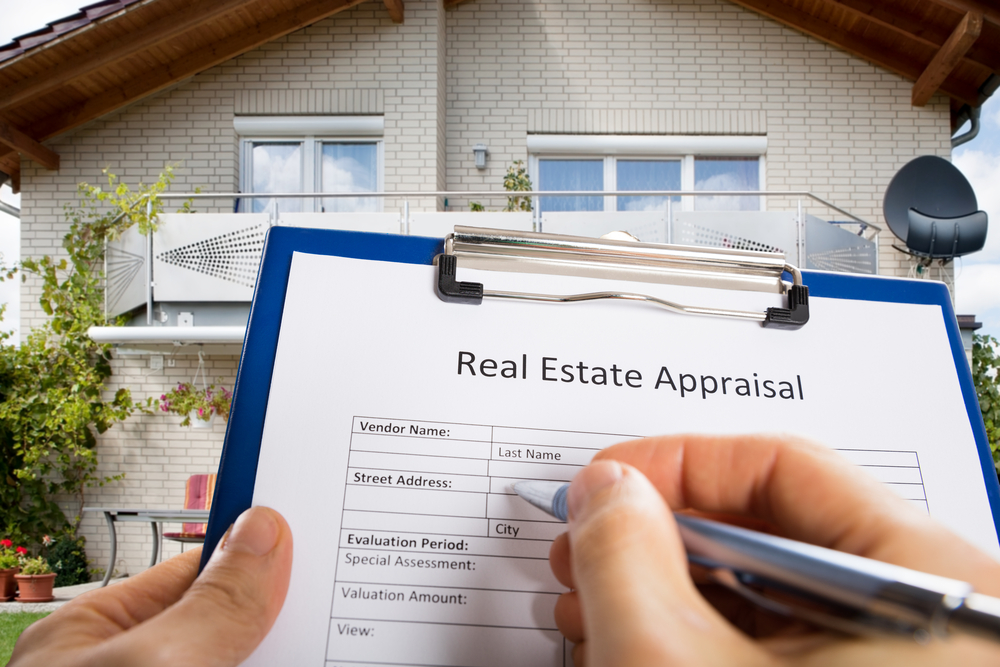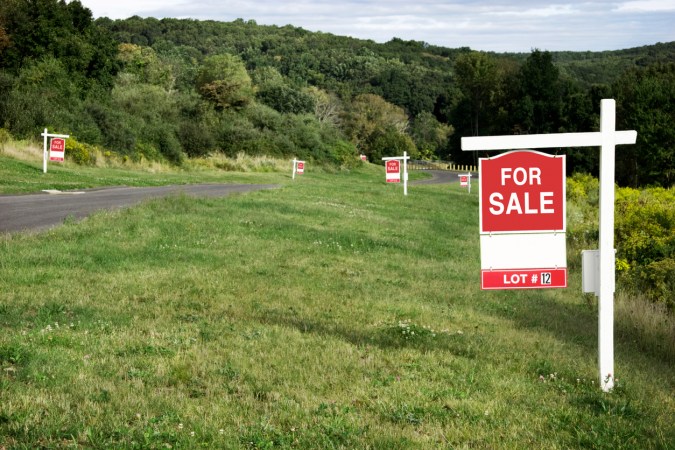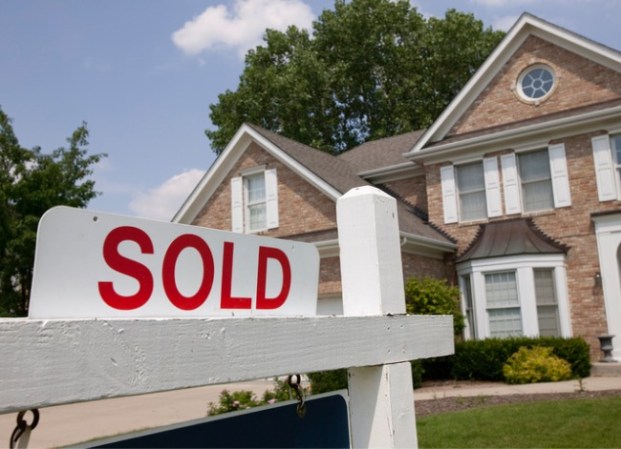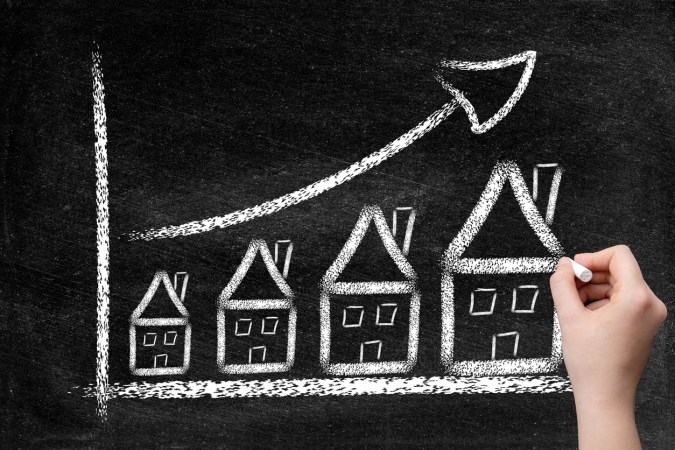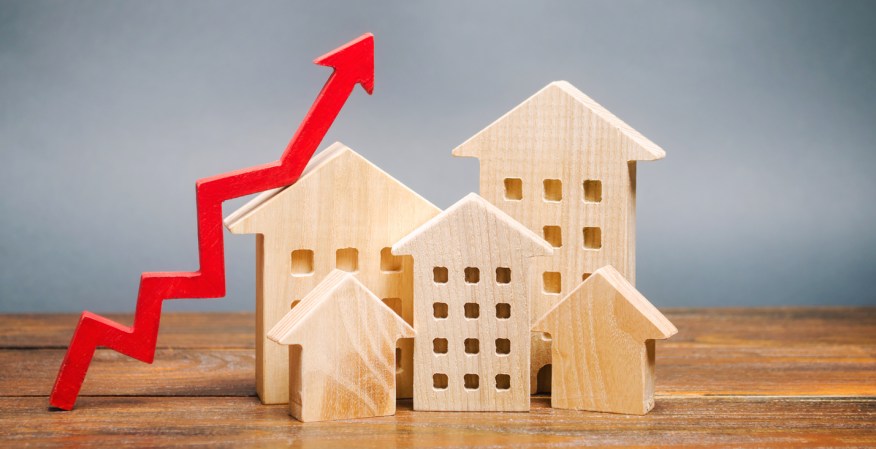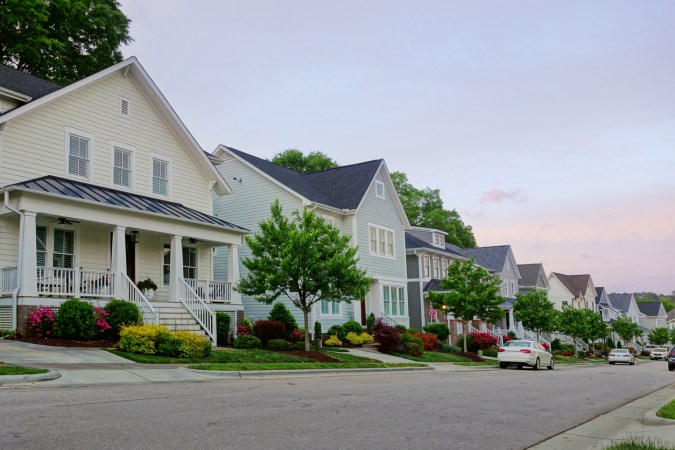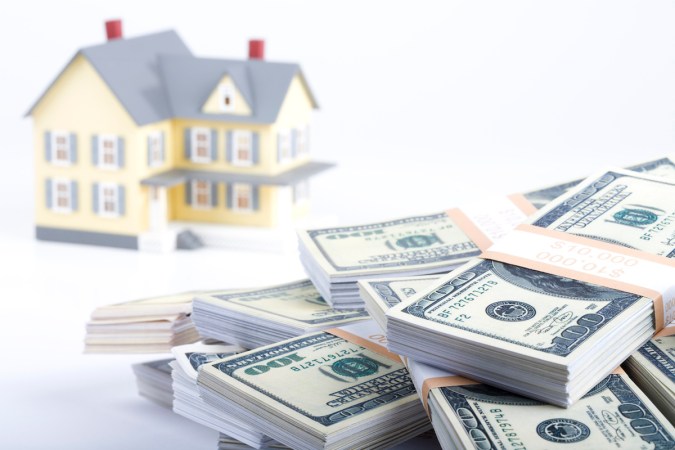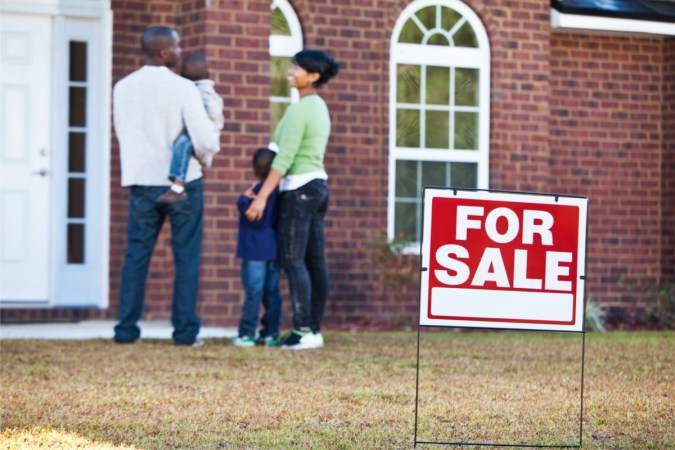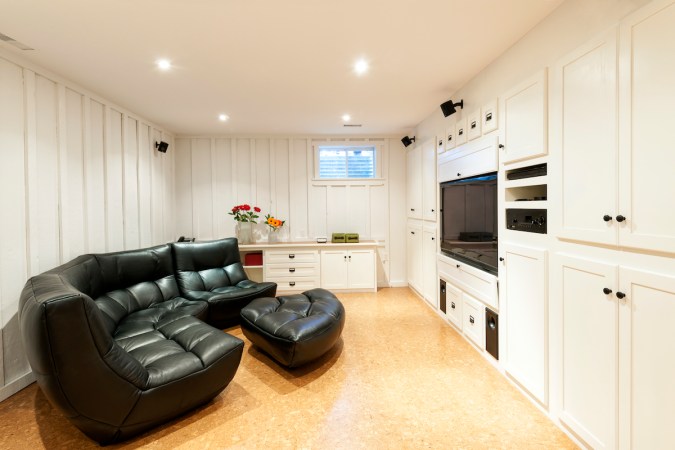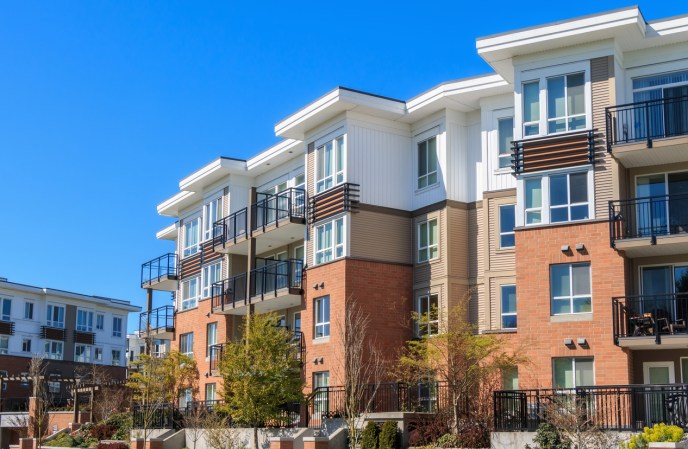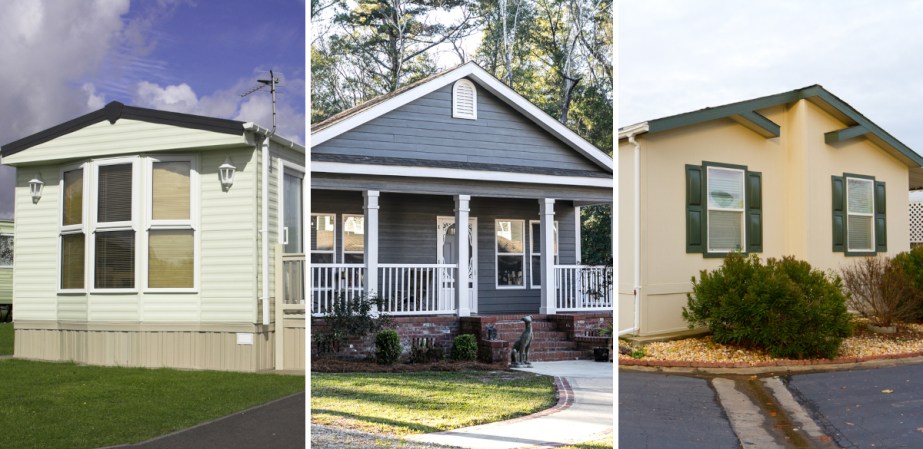We may earn revenue from the products available on this page and participate in affiliate programs. Learn More ›
- Typical Range: $312 to $408
- National Average: $341
Buying, selling, and refinancing have one thing in common: Each one requires a home appraisal. Lenders usually require home appraisals to determine the appropriate value of your house based on the market, your neighborhood, and your home’s condition. Home appraisal costs typically fall within a price range of $312 to $408, with an average of $341, according to HomeAdvisor. Anytime you are looking to get a home loan or refinance an existing loan, a bank will likely request a home appraisal. The mortgage lender needs the most current home valuation to make sure the loan is accurate. Home appraisers are licensed professionals who live in your area and familiar with the market around your home. Your location, the type of loan, and property upgrades are just a few ways home appraisal costs are determined.
What Is an Appraisal?
A home appraisal is a method for determining the value of a home. Home appraisals can only be conducted by licensed, third-party individuals, preferably one who does not have an interest in either party in order to maintain an objective view of the home’s value. Licensed appraisers are required in all 50 states. The appraiser researches the sales of comparable houses in your area and reviews your property to assess its condition and value. This means the appraiser will come on-site to check the appearance and state of the property (exterior and interior), then put together a report over the next several business days. Home appraisal fees are paid up front and are nonrefundable, even if a sale or refinance falls through.
A house appraisal usually results in a home value similar to other homes in the area that are of similar size and condition; however, the price could go up or down depending on the condition of certain features. For instance, a newly remodeled kitchen would increase the home’s value, but a garage in disrepair would bring the value down. If you feel that an appraisal doesn’t accurately reflect your home’s value, you can always appeal the report or get a new assessment.
Mortgage lenders require a home appraisal to gauge the amount of risk they’ll incur for the homeowner’s loan. Since the house becomes the collateral for the loan, there’s no benefit to either party for an overvalued house. The home appraiser is licensed and qualified to make an accurate assessment based on your property.
You may be wondering if a home inspection is the same as a home appraisal. It’s not. An inspection is used to carefully check the structure of a home—from foundation to roof—to assess its safety and overall working condition. A home appraisal is only an assessment compared to similar homes to determine the home’s value based on appearance and the market.
Home Appraisal Checklist
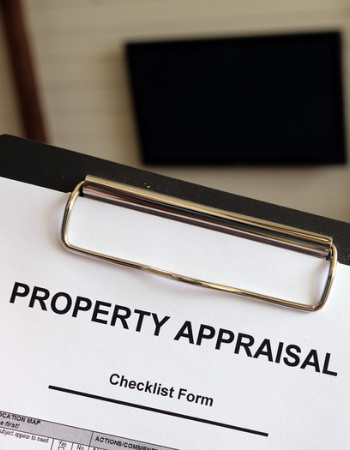
It’s in your best interest to make sure your house and property are in great shape. The better a home’s appearance, the better the home appraisal value. A big reason some homes are devalued is that the property is in poor condition. Keeping the yard and house appealing will help increase a home’s value. Even a minor update can have a significant impact. Since appraisals are done in $500 increments, repairing anything under $500 can have a big impact on your property’s overall condition and value. Here are several items to complete before a home appraisal to make sure you get the best assessment.
- Check recent home sale prices in your neighborhood.
- Compare your home’s condition to other homes in the neighborhood, and assess any areas that could use some updates or repairs.
- Make sure your landscaping is top-notch since a visual curb appeal strongly influences a home’s value.
- Complete any exterior repairs like broken gutters or shabby trim to help boost the curb appeal.
- Ensure all lights, fans, switches, outlets, vents, and HVAC systems work, and repair any that don’t.
- Complete any interior repairs like damaged drywall, leaky faucets, cracked flooring, or ripped window screens, as these small items can add up.
- Consider painting any rooms that need to be freshened up.
- Clean and declutter each room, then make sure every room is odor-free and fully accessible.
- Set your thermostat to a comfortable temperature to show it’s working correctly.
- Decide what you’re willing to sell with the house (appliances, sheds, hot tubs).
- Write a detailed list of any upgrades or remodels you’ve done to the house or yard, with particular attention to any added square footage. Include the date, cost, and any permits that were required for those upgrades or remodels.
- Prepare a copy of any property agreements you may have with neighbors.
- Collect your copies of any legal or title deeds for the appraiser to review.
- Make a copy of any previous appraisals you’ve had done on the house.
- Provide blueprints to the house if you have them and if they’re updated.
- Be flexible and work with the appraiser’s schedule.
Home Appraisal Cost Factors
Home appraisal fees vary from one property to the next. Extensive properties will need more time for the appraiser to accurately assess based on the home’s age, upgrades, location, and more.
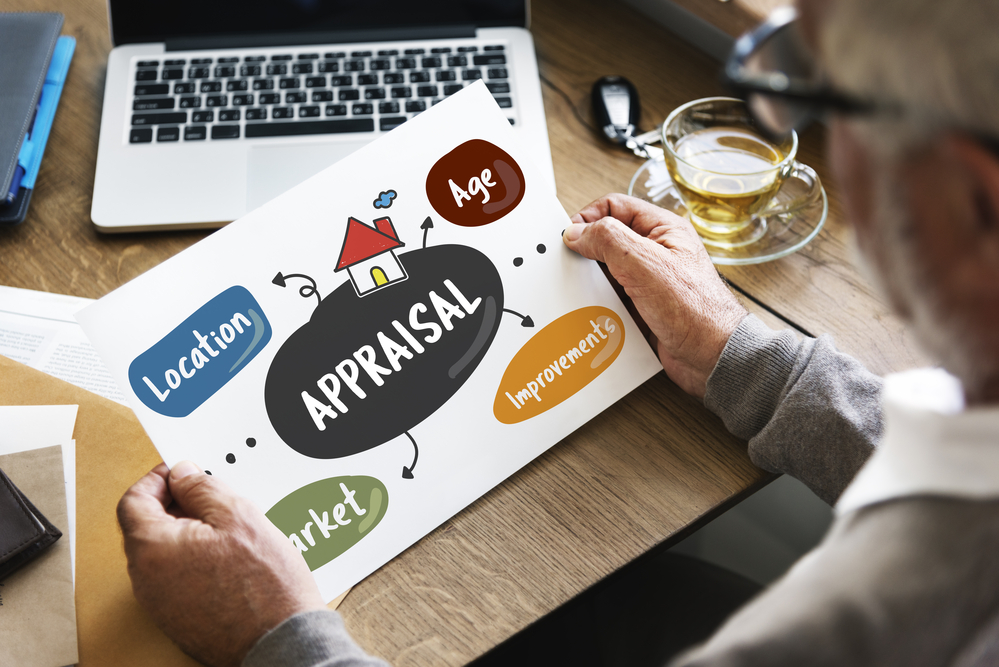
Type of Property
A 2,000-square-foot house with a small yard will take much less time to be appraised compared with a 6,000-square-foot house with an expansive yard, deck, and pool. A large property appraisal could cost more than $1,000. If you own a mobile home, an appraisal usually costs $300 to $775. Getting an appraisal on a condo averages $375 to $400, and appraising a ranch is usually $600 to $1,000.
Type of Loan
If you’re looking to get a standard single-family home loan, most appraisal fees cost between $300 and $400. The costs associated with applying for a U.S. Federal Housing Administration (FHA) single-family home loan will be higher since there are more items the appraiser will check for. Expect to pay around $400 to $500 for an FHA loan appraisal.
Setting and Location
The location of your property is another factor for home appraisal costs. Appraisal fees in metropolitan areas usually average $600. If the appraiser needs to travel to your house in a rural area, you will likely pay more than the average price.
Appraiser Availability
For an accurate assessment, the home appraiser should have a place of business in the same county as your house. This ensures that they are familiar with the housing market in your region, including all the fluctuations and differences from one town to the next. If there are few appraisers in your area, you may need to pay extra for their services—probably between $100 and $200 more. Search for “appraisers near me” to find one in your area.
Home Age
The age of your home affects the value of your home more than it affects the cost of the appraisal; however, if your home is old and not on par with the other homes in the neighborhood, it could take more time for the appraiser to complete an assessment. They’ll need to conduct extra research to find comparable homes to assess the total value. You might have to pay an additional $50 to $100 for the appraisal of an older house.
Upgrades, Additions, Remodels, and More
It’s not uncommon for a house to have remodels and upgrades to enhance the homeowner’s living space and lifestyle. Whether to the interior or exterior, most upgrades and additions will increase the total property value and take extra time to be assessed. Since each upgrade has its own value, the appraiser will need to inspect each item to determine how much value it adds. The extra time typically adds another $100 to $200 to the home appraisal cost.
Factors That Affect the Cost of a Home
Whether you’re selling your house or refinancing, you want to make sure the home is appropriately valued. Overvaluing can dissuade potential buyers from choosing to buy it, and undervaluing means you’ve lost equity. The location, size, age, and condition are some of the most significant factors contributing to your home’s cost.

Choosing to upgrade or improve your house can increase the cost and value whether you stay or sell.
Location
Living in an urban area automatically means your home has a higher cost since the cost of living is higher. And living in a rural area usually means lower home costs, even if the homes include more property. Suburban areas can consist of home costs across the spectrum since some neighborhoods are more developed than others. The quality of schools, hospitals, and commercial properties nearby will also affect home costs.
Square Footage
It’s not a secret that more square footage means a house costs more. More raw materials and labor were used to build the extra space regardless of whether it’s original to the home or an add-on. In general, the price per square foot should be about the same as for the rest of the neighborhood if the house is of a similar size and style.
Age and Condition of the Home
Older homes tend to have less value than newer homes since they may not have all the newer appliances, features, and floor plans that are in style. It’s also likely that older buildings do not meet existing building codes, some of which don’t need to be updated before selling but can affect the house’s value. A home that needs significant repairs will also have a lower cost since it doesn’t match the value of neighboring homes in good shape, and the prospective buyer would have to spend more to get it repaired.
Upgrades
Completing upgrades and renovations to an older home is a wise idea to help improve the property value and cost of a home. Many buyers look for homes with contemporary kitchens, bathrooms, or floor plans to suit their preferred lifestyle. As a word of caution, be aware that adding too many upgrades or changes to a house can also bring the value down if the updates improve the house so much that it no longer suits the neighborhood it belongs to.
Other Homes in the Neighborhood
The condition of other homes in a neighborhood can raise or lower a house’s cost. A community in disrepair brings down everyone’s property value, just as the opposite is true that well-kept neighborhoods increase value. This is why HOAs are a popular way to keep neighborhoods at a certain level to maintain everyone’s property values.
Home Appraisal Cost: Types of Appraisals
Though appraisals generally have the same purpose of determining a home’s value, there are four kinds of appraisals available: private, bank, U.S. Federal Housing Administration (FHA), or U.S. Department of Veterans Affairs (VA). There are differences between each appraisal that may include items homeowners need to address or areas that appraisers need to pay special attention to. Home appraisal costs vary only slightly between each kind of appraisal.
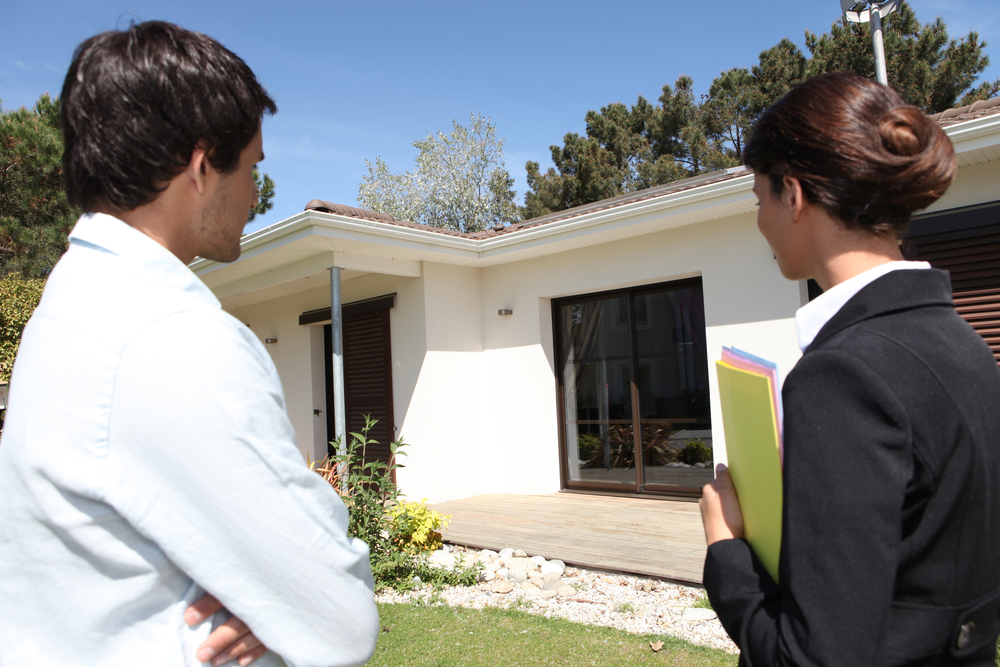
Private Appraisal
Usually, an appraisal is done at the request of the bank or lender, but homeowners can request their own appraisal for any number of reasons. The most common cause is that a homeowner wants a second opinion from another appraisal. A private appraisal costs about the same as a bank appraisal: between $300 and $500. Note that there’s a possibility that the lender won’t accept the appraisal if they did not authorize and request it.
Bank Appraisal
A bank appraisal is simply an appraisal requested by the bank to have a property assessment completed to meet their requirements. It’s the most standard form of appraisal and costs $300 to $500 on average for most single-family homes. Banks will request a home appraisal using a list of known appraisers with solid reputations who are local to the area.
FHA Appraisal
Insured by the Federal Housing Administration, an FHA loan allows buyers to obtain a loan with a lower credit score of small down payment. These loans require an FHA appraisal, which includes a more extensive checklist than a standard appraisal to ensure the property meets standards established by the U.S. Department of Housing and Urban Development (HUD). The property is still valued by the location, size, and condition, but sellers may find they need to correct some standard items found on an appraisal before selling the house. An FHA appraisal usually costs $400 to $500.
VA Appraisal
If you are a military veteran, you may qualify for a loan from the U.S. Department of Veterans Affairs (VA). The VA also requires its own kind of appraisal to ensure the house is in good condition. VA appraisal fees are determined by the government and cannot exceed specific amounts for certain properties. The average cost is $400 to $500, and the checklist also includes additional items to make sure the property is in good, livable condition.
How to Deal With a Low Appraisal
It’s frustrating when an appraisal comes in lower than expected, especially when you put in extra time and money to get your property in tip-top shape. The first step should be to talk with the appraiser to ask why the assessment resulted in a lower number than expected. The home appraiser will have documentation to back up their decision, so it should be easy to understand how they came to their result. If you disagree with a specific part of the report, you have a right to appeal the report and discuss why you believe it’s inaccurate. Provide any documentation to prove why you think there’s a problem. Ideally, any related home value documents should have been given to the appraiser when they started the process to avoid this problem. Documented evidence can help improve a low appraisal.

If the appeal does not work, you can also request a new appraisal. In some cases, a bank may be willing to coordinate a new appraisal, or you may need to hire an appraiser on your own. The risk of a private appraisal is that a lender may not recognize its validity. It may help to provide it to the original appraiser to see if they can reassess, though. If the bank agrees to a second appraisal, you can always ask the seller to split the costs since it’s in both of your interests to have an accurate appraisal.
A low appraisal could work in your favor if you are a homebuyer to renegotiate for a lower purchase price; just make sure the property is genuinely at the value you believe you’re willing to purchase it for. On the other hand, you may prefer a higher appraisal value as a buyer in order to qualify for your loan. You can ask the seller to take out a second mortgage to cover the difference between the low appraisal and the purchase price. They may agree to a balloon payment after the equity rises enough for you to do a cash-out refinance.
Home Appraisal Cost: Do I Need a Home Appraisal?
Home appraisals are almost always required in all 50 states when purchasing, selling, or refinancing a house. It’s in your best interest to get an accurate home appraisal for a few reasons: It helps you get approved for a mortgage, it makes sure you don’t overpay for a house, it gives negotiating power, and it makes sure your property taxes are accurate.
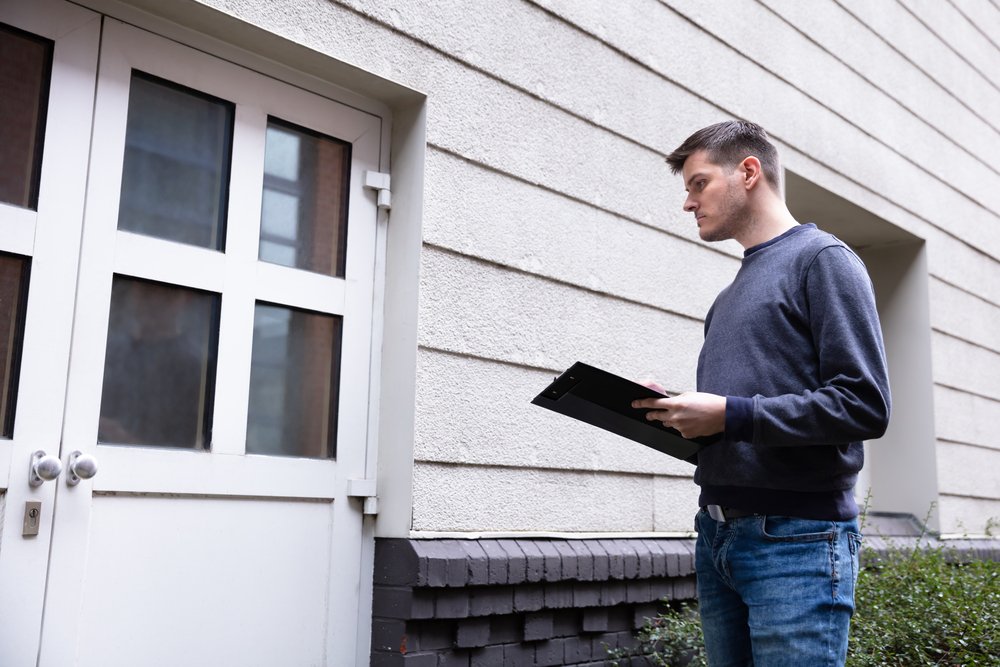
Buying and Selling a House
As a buyer, you want to be confident that you’re getting the correct value for your money. Overpaying for a house means you lose equity and pay interest on a larger loan than necessary. As a seller, a home appraisal helps prove that your property is worth the selling price. If you’ve spent money updating the house, you want to make sure you get the appropriate return on your investments.
Refinancing a House
A refinanced loan replaces the original loan, but since time has passed since the original loan was approved, the bank will need to reassess the property. A lender will request an appraisal to get an updated home estimate of the value of your home. If your property value has increased, you may be able to cash out part of the original loan, but you may not be approved for a new loan if the value has decreased.
Applying for a Home Equity Loan
A home equity loan is a loan on top of the mortgage loan rather than a refinanced loan. Just like the name indicates, it’s a loan based on how much home equity you have after subtracting what’s left of the mortgage against the home’s current value. If the property’s value has decreased, there may not be sufficient value for a lender to approve a home equity loan.
Applying for Other Loans
Some loans require significant collateral against the loan. Business loans are one example of this. If you need to put your home up for collateral to secure another kind of loan, the lender will need a home appraisal to estimate what your home (the collateral) is worth.
Appealing Tax Assessments
Property taxes are based on the fair market value of your home in your specific area. In a booming housing market, property taxes usually increase across the board. Still, if your area’s market has declined without a decrease in property taxes, you could get an appraisal done to help appeal the tax assessment. Check with local authorities to make sure they accept unrequested homeowner appraisals.
Home Appraisal Cost: DIY vs. Hiring an Appraiser
As well-versed as your real estate agent may be in your current housing market, their assessment is not the same as getting a licensed professional to evaluate the home. The same goes for you. This is one area where federal regulations require you to hire an independent, third-party professional who is trained and licensed to conduct a home appraisal. It’s best in the long run, anyway, since you want to have an unbiased assessment of your property to make sure you can buy or sell the home at the appropriate value.
A lender wouldn’t accept a home appraisal conducted by either the buyer or seller since it would create a conflict of interest—not to mention it goes against federal regulations. Ideally, neither the buyer, the seller, nor the real estate agent would be a close friend or family member of the appraiser to avoid any bias. And the law prohibits a lender from having a close relationship with any home appraisers. If a homeowner is conducting their own appraisal to revalue the house for their own purposes, they can hire their own appraiser; however, a lender is unlikely to accept such a report, particularly in cases involving buying or selling a house.
How to Save Money on Home Appraisal Cost
Money can fly through your hands reasonably quickly when buying or selling a house. It’s natural to want to find ways to save money on home appraisal costs, so here are a few tips to keep in mind.

- Plan early. If appraisers are in short supply in your county, plan to get one scheduled and avoid any rush fees or closing delays.
- But don’t plan too early. A home appraisal only lasts about 4 months before it needs to be redone. If your housing market is a little slow, follow your real estate agent’s advice of when to get an appraisal so you can try to avoid paying for more than one.
- Provide all the information up front. Providing every piece of information an appraiser will need when they arrive will help them understand your home and the area more quickly, saving them time while they create their report.
- Ask about appraisal waivers. In some cases, you may be approved to skip getting a home appraisal depending on the kind of loan or the loan-to-value ratio you have.
- Share the cost. You may be able to ask the other party to share the home appraisal cost, especially if it’s a second appraisal.
Questions to Ask About Home Appraisal Cost
Assessing the value of your home is a big deal. It can affect the amount of the loan you receive and also the price you pay for the house or the price you sell it for. You want to make sure that you get your money’s worth when paying home appraisal costs, so use these questions to ensure you have all the information you need when getting a home appraisal.
Ask the lender:
- Do you know this appraiser personally?
- Have they provided accurate home valuations in the past?
- Are they local?
- Who pays the fee for this appraisal?
Ask the appraiser:
- May I see your license and credentials?
- Where is your business based? (Make sure it’s local.)
- How much experience do you have with homes similar to mine?
- Have you ever had a homeowner appeal the report?
- What is your fee?
- How much time will you need?
- What paperwork or forms do you need from me?
- How long will your report take to complete?
- Will you call me if you have any questions or need further documentation?
- Will I receive a copy of the report from you when it’s complete?
FAQs
Home appraisals help facilitate the process of one of the most significant purchases you’ll make. It’s essential to understand the process and your role in it. These are a few of the most frequently asked questions about home appraisal costs and their answers.
Q. Who pays for a home appraisal?
The person buying a house is responsible for home appraisal costs, and the homeowner pays for an appraisal when refinancing a loan.
Q. How can I get a free home appraisal?
Online resources can provide a free home appraisal, but be advised that these are not licensed reports and will not be accepted by lenders. They’re helpful tools for establishing an expectation of your home’s value for your own purposes, though.
Q. What hurts a home appraisal?
A home appraisal is based on the appearance and aesthetics of your house. If the yard or exterior of the house is in poor condition, potential buyers may be turned off by the lack of curb appeal, and a home appraisal may also be affected. The same goes for the interior. If there are repairs that weren’t completed, the home appears dirty and cluttered, or the appliances and materials (cabinets and countertops) are outdated, then the value of the house will be reduced. It’s also possible that the surrounding area can lessen the appraisal’s value if the neighborhood is in poor shape, your home is located on a busy street, or the housing market is in a slump. Just remember that maintaining your own property—inside and out—will help boost your chances of an accurate home appraisal.
Sources: HomeAdvisor, NerdWallet, Bankrate, Fixr, HomeLight, HomeGuide, Investopedia
